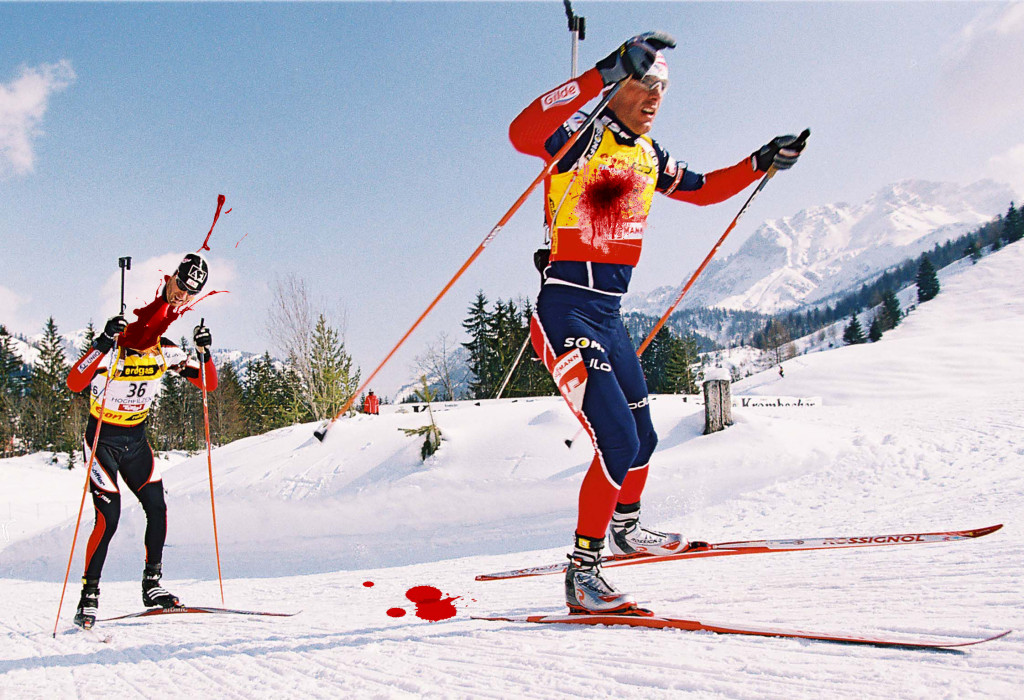Boring sport reinvented with a modern, ‘Hunger Games’-style twist
By Aidan Mouellic, Staff Writer
In the wake of dwindling viewership and their sport becoming basically obscure, members of the International Biathlon Federation (IBF) have voted in new “Biathlon Battle Royale” rules to take effect next season.
“Biathlon is no longer exciting enough for younger and newer viewers—they want action, they want thrills,” said IBF chairman Walther Peepikay.
Under the new rules, biathletes will no longer just be shooting stationary targets—they will also be shooting each other. Racers will still ski and shoot targets, but after a certain time has elapsed in the race, they will be allowed to shoot one another with rapid tranquillizer bullets. The new bullets are safe, but they eliminate the chance of finishing the race if hit with one. The tranquilizer drops a skier faster than a failed doping test, and will keep them knocked out for close to five hours.
The rifles used in biathlon typically fire .22 caliber bullets that would be deadly to the athletes. The IBF realized that they need competitors alive to keep the sport alive, so they have introduced a fast-acting tranquilizer bullet that will become standard issue on the racing circuit and facilitates the new Battle Royale race format.
Norwegian doctors have spent over two years developing the high-tech ammunition under a thick cloak of secrecy. One of the doctors, who wished to not be named, told us that the first few prototypes developed were awful: “We would shoot a test subject and they would stumble for minutes and then be out cold for days.” After a long period of tweaking and changing the design of the cartridges, the doctors succeeded in developing the ammunition that acts fast and stays in the system for a shorter period.
Most athletes are not keen on the rule changes. Biathlete Geoff Clark of Los Angeles tells the Other Press that, “In the neighbourhood I live in, I have to dodge bullets on the way to Whole Foods. I became a biathlete to avoid being shot and now I will be shot; it sucks but at least I won’t die.”
Still, the IBF stands behind their decision and thinks that it’s a win-win solution to dwindling viewership numbers.
“We get our viewership numbers up on television, and no athlete has to get shot with real bullets to achieve the result of increased advertising revenue,” explained Peepikay. “It’s a situation with no losers, we all benefit from this—the public gets entertained, the athletes get to live, and the IBF increases revenues.”
Clearly, biathlon is heading in a more violent direction, and time will only tell if the changes will be welcomed by the rest of the sporting world. For the time being though, it seems that the sport has found a way to stay relevant in a world seeking thrilling violence in sports.

